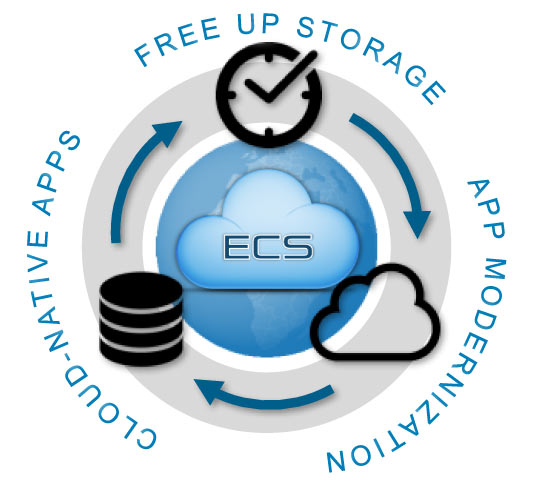Digital Transformation with Radical Simplicity
The Inflection Point
It’s no surprise that unstructured data continues to grow exponentially year over year and doesn’t show signs of slowing down anytime soon. Some organizations are left managing this data with traditional storage infrastructure which is not only very expensive, but does not scale at the rate in which the data is growing. IT budgets continue to remain flat or grow at an ungenerous rate of about 5% annually and capital expenses tend to double almost every year for most organizations. The other pressing issue is the requirement of somehow maintaining the same (if not better) level of service with fewer resources as data growth continues to strain storage infrastructure. This type of trend is not sustainable and if certain organizations do not transform their business then they will struggle without question. We know what you’re thinking – wouldn’t it be great if the world’s largest provider of data storage systems created a cost effective, cloud-scale solution to solve this enterprise level challenge?
(if not better) level of service with fewer resources as data growth continues to strain storage infrastructure. This type of trend is not sustainable and if certain organizations do not transform their business then they will struggle without question. We know what you’re thinking – wouldn’t it be great if the world’s largest provider of data storage systems created a cost effective, cloud-scale solution to solve this enterprise level challenge?
Dell EMC’s Elastic Cloud Storage (ECS)
Elastic Cloud Storage (ECS) is Dell EMC’s 3rd generation object-based storage system that provides the ability to:
- Consolidate primary storage resources and elevate ROI
- Modernize traditional and legacy applicationsfor better storage utilization
- Accelerate cloud native applications to deliver new business value
ECS delivers a multipurpose platform that satisfies a variety of different use cases and plugs in perfectly to almost any existing Dell EMC investment(s). ECS singlehandedly simplifies management, increases agility, and most importantly – lowers costs. At scale, ECS is undoubtedly one of the most cost effective solutions available in the market today. In fact, analyst Enterprise Strategy Group (ESG) recently conducted a survey that shows ECS provides a 60% or greater cost advantage compared to other leading public cloud providers.
ECS extends the cloud to primary storage and allows you to free up your infrastructure through Dell EMC cloud-enabled solutions (e.g. CloudPools, CloudBoost, CloudArray, etc.). Customers have the ability to seamlessly tier colder, inactive workloads from existing primary storage investments (e.g. Isilon, VMAX Series, VPLEX, VNX Series, Vx Series, Data Domain, Data Protection Suite, etc.) to ECS. This resource consolidation eliminates the need to purchase additional, more expensive platforms and better utilizes the infrastructure you have in your storage environment today.
An object-based platform like ECS can drastically increase responsiveness and better secure data when you compare it to that of a traditional NAS system. Data is protected using erasure coding and the chunks of data are then geo-distributed across all nodes within the system providing instant read/write access from any location. Strong consistency semantics ensures only the most recent copy of data is accessed simplifying application development efforts. A geo-caching capability further enhances responsiveness through intelligent system recognition of access patterns which minimizes WAN traffic and improves system latency.
ECS provides simple and easy access to applications through a single global namespace. This makes it easy for developers not having to deal with complex NFS file systems – they can focus on app development and not the operations and implementation details behind it. By modernizing traditional applications into an object store, users get fast and easy provisioning, direct access to content over the web via HTTP, global accessibility through a single namespace, and the absolute best utilization of storage resources in the datacenter.
Cloud-native applications take full advantage of a cloud system framework. ECS’ architecture is completely software defined with total abstraction from the north and southbound allowing compute and storage resources to scale independently from each other. Everything within ECS is containerized and there are no hardware dependencies or the need to re-code, re-tool or reconfigure applications as ECS provides multi-protocol support. This allows developers to innovate and deliver their applications to market at a much quicker rate.
Bridging the Gap
Enterprises and cloud service providers alike can leverage ECS as a way to fund their ‘digital transformation’ as traditional, line-of-business applications go into decline and cloud-native apps begin to surge over the next decade. ECS bridges the gap between Platform 2 (traditional) and Platform 3 (next-gen) applications on a single storage system. Not only can ECS easily handle the extraordinary amount of unstructured data that’s growing, but as a multi-purpose platform it can serve up all the many different workloads you currently manage today and ready your organization for what the future throws at you.
